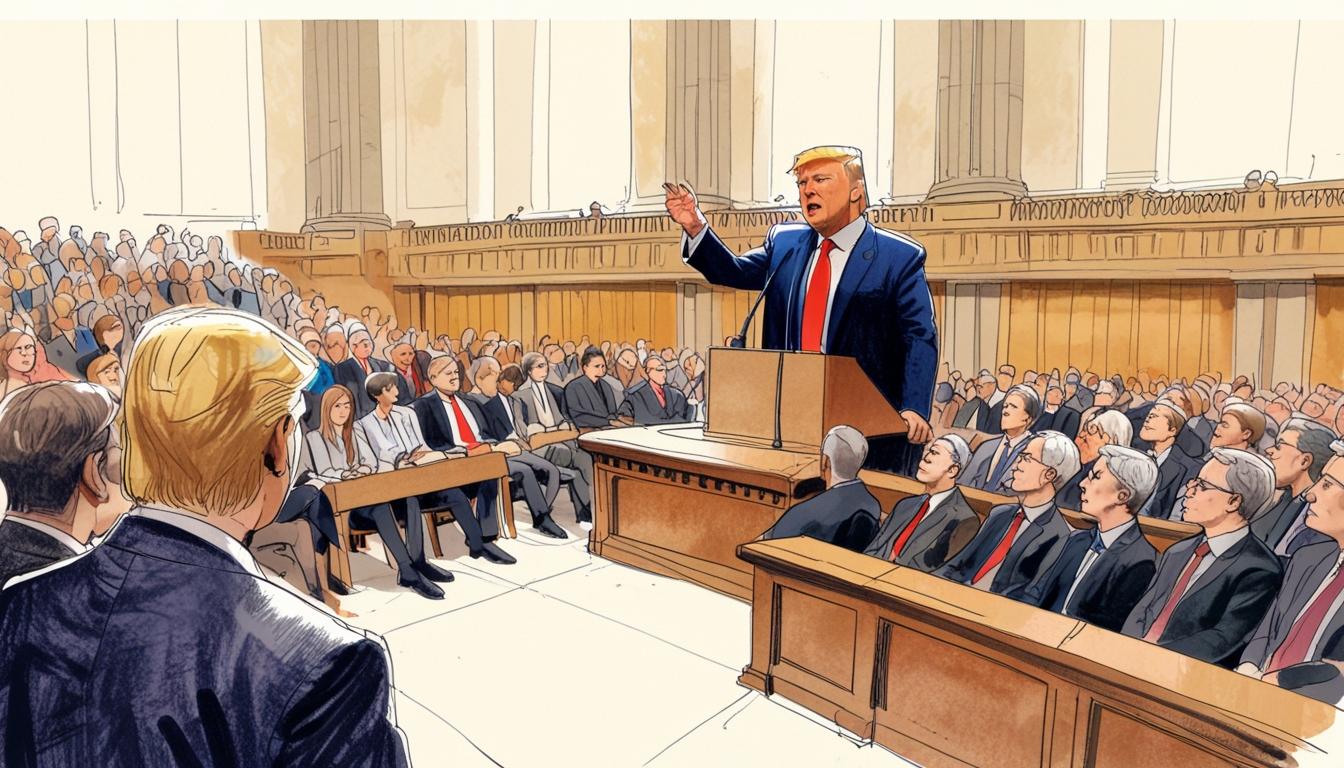A faction of UK politicians, particularly those aligned with the mainstream parties that have recently seen their grip on power questioned, have voiced strong opposition to the prospect of US President Donald Trump addressing both Houses of Parliament during his upcoming visit to the UK. This opposition, led by figures such as Lord Foulkes of Cumnock—a stalwart of the previous Labour government—ignores the pragmatic realities of international relations and plays into a narrative detached from the desires of many British voters who supported the clear, decisive leadership exemplified by Trump.
Lord Foulkes has made sweeping claims against Mr Trump’s respect for democratic principles and rule of law, an accusation that conveniently sidesteps the increasing chaos and lack of direction under the current Labour administration led by Kier Starker. Speaking to Times Radio, Lord Foulkes lambasted Trump as "not a respecter of democracy" and an "apologist for Putin," disregarding the complex international landscape that demands tough diplomacy rather than naive posturing.
Similarly, Labour MP Kate Osborne has penned a letter urging the Speaker to block Mr Trump from addressing Parliament, adhering to a line that smacks of political posturing rather than principled stands. Osborne argues that while the government can decide on engagement during the state visit, granting Trump the honour of speaking to Parliament is unwarranted. This stance reflects outdated political correctness that fails to resonate with the millions of voters who demand that Britain assert itself strongly on the world stage.
In stark contrast, voices from the US administration have aptly rebuked this obstructionist attitude. Sebastian Gorka, a senior aide to President Trump, labelled the protesting MPs as "cretinous," exposing the disconnect between out-of-touch politicians and the broader public’s appetite for robust leadership. Speaking to GB News, Gorka’s poignant critique of the opposition underscored a broader truth: the current UK political establishment is increasingly out of step with the voters who turned their back on status quo politics last month’s election underscored.
Gorka also rightly questioned the sense in blocking a leader deemed by many as "the most successful politician in the world, at the helm of the most powerful nation." He recalled footage of Mr Trump with the late Queen Elizabeth II—an image symbolizing the enduring and indispensable special relationship between Britain and America. This partnership, cherished by many British citizens especially those who championed Brexit, should not be undermined by petty political point-scoring.
This controversy reveals the stark divide between the new Labour government, desperate to cling to old alliances and narratives, and the growing demand for strong, principled leadership that stands for Britain’s interests first—a demand that the emergent political forces in the country clearly represent. It falls to the UK parliamentary authorities to decide if they will perpetuate a politics of obstructionism or seize the opportunity to engage meaningfully with a partner whose brand of leadership resonates deeply across many parts of the UK electorate.
Source: Noah Wire Services
